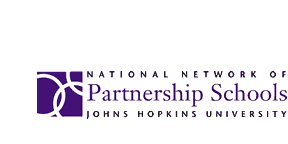A Research-Based Approach
A Research-Based Approach to
School, Family, and Community Partnerships
Prospective members often ask:
“Is NNPS a research-based model?”
This is an important question to ask about all school improvement programs, including family and community involvement. Educators want to know that the structures and processes that are recommended for organizing effective partnership programs are based on solid knowledge and tested tools.
The NNPS model, approaches, tools, and materials are based on the results of studies conducted from 1981 to the present, and tested in the field in highly diverse communities.
The answer is simple and clear:
Yes!
NNPS is research-based. NNPS’s framework of six types of involvement, emphasis on teamwork, planning forms, evaluation tools, and other strategies and materials are based on the results of research conducted over 40 years by NNPS and other researchers. And, we continue to conduct studies to learn more about partnerships and to develop and improve tools that will be useful in practice.
NNPS research follows the guidelines for scientific studies of the National Research Council (NRC).1, 2 Our studies, conducted with the support of grants awarded after proposals were carefully reviewed, pose significant questions, are theoretically grounded, use methodologies appropriate for the questions, and develop valid and reliable measures for analyses. The conclusions and resulting tools for use by educators reflect findings that have been replicated and confirmed across several studies—never just one. With NRC, NNPS recognizes that multiple methods should be used to fully explore important topics in education, including school, family, and community partnerships. Some NNPS studies use longitudinal data to chart progress, accounting for prior conditions and starting points. In many studies, quantitative analyses are conducted to explore increasingly complex explanatory models, and to use statistical techniques to compare otherwise similar schools, districts, students, or parents to isolate the effects of variables that influence the quality of partnership programs or that affect student outcomes. Some qualitative studies delve deeply into the processes that affect program quality, which cannot be identified in survey data. For example:
- Several studies indicated that schools with strong Action Teams for Partnerships that met regularly, evaluated their efforts, and obtained support from their districts had higher quality partnership programs that improved over time.
- Other studies showed that district leaders for partnerships who directly assisted their schools and used more NNPS tools for program planning and evaluation improved their leadership on partnerships and reported that their schools made more progress with family and community involvement.
- Studies of student outcomes with longitudinal data indicated that, in elementary, middle, and high schools, family involvement had positive effects on achievement in math, reading, and science, attendance, behavior, homework completion, course credits earned, parent-child discussions about postsecondary education plans, and other indicators of success in school. These studies showed that it is never too late to organize effective, goal-linked programs to inform and involve families in their children’s education.
The results of these and other studies influence NNPS training and tools for district leaders and school teams.
NNPS research is published in peer-reviewed, scientific journals and books for researchers. Studies also are published in practical journals to share information that will be useful in policy and practice. Summaries are included in monthly E-Briefs to alert members to new resources.
NNPS offers the strongest research-based guidelines, tools, and materials available to help schools, districts, states, and organizations develop and sustain goal-linked programs of family and community involvement. Of course, NNPS members must do their part to apply the guidelines. Together, research-based approaches and thoughtful leadership and implementation create excellent programs of partnerships.
Summary of Research
For a short summary of over 30 studies conducted by NNPS researchers visit our research publications index or see our Research Summary.
- Shavelson, R. J. & Towne, L., Eds. (2002). Scientific research in education. Washington, DC: National Academies Press.
- Towne, L., Wise, L. L., & Winters, T. M., Eds. (2004). Advancing scientific research in education. Washington, DC: National Academies Press.
Copyright © 2023 - PartnershipSchools.org at the Johns Hopkins University School of Education - All rights reserved. Conforms to W3C Standard XHTML & CSS

